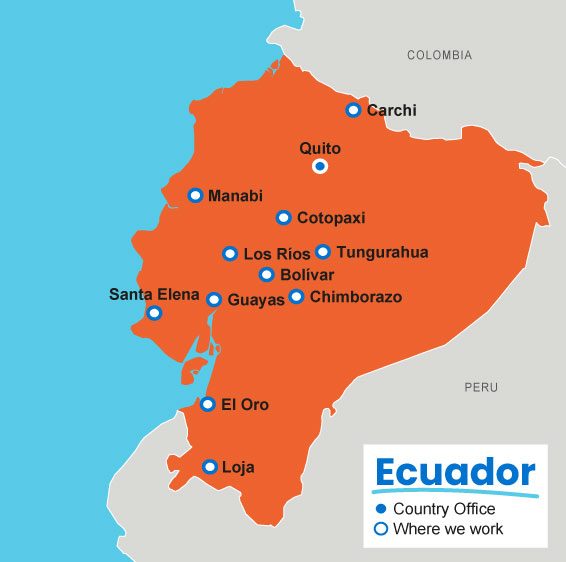The role of fathers in parenting for gender equality
Fabian, father of 3, talks about the positive parenting skills he has learned and the positive effect it has had on his family.
Plan International has been present in Ecuador since 1963. We work together with children, young people, supporters and partners to
strive for a just world where we are all equal.
We work with children from birth to adulthood in 12 provinces. Our projects focus on several areas:
All our projects use a “Smart Zones” methodology. This focuses on girls and adolescents learning through games and art about rights, values, leadership and resilience with the purpose of preventing and reducing violence and promoting a more equitable country.
As a humanitarian organisation, we respond to emergencies, displacements and forced migrations that occur in the country.
In addition, we use child sponsorship to support children and implement community development projects.
Our work has shown that girls who have the necessary tools become protagonists in their lives and support their families and communities to develop. We want Ecuador to be a country with zero tolerance for discrimination and inequality towards girls.
We won’t stop until we are all equal.
Avenida República OE1-135 entre 10 de Agosto y Teresa de Cepeda,
Quito
(+593) 2 244 4941/244 4942/244 4943
ecuador@plan-international.org
Follow us:
